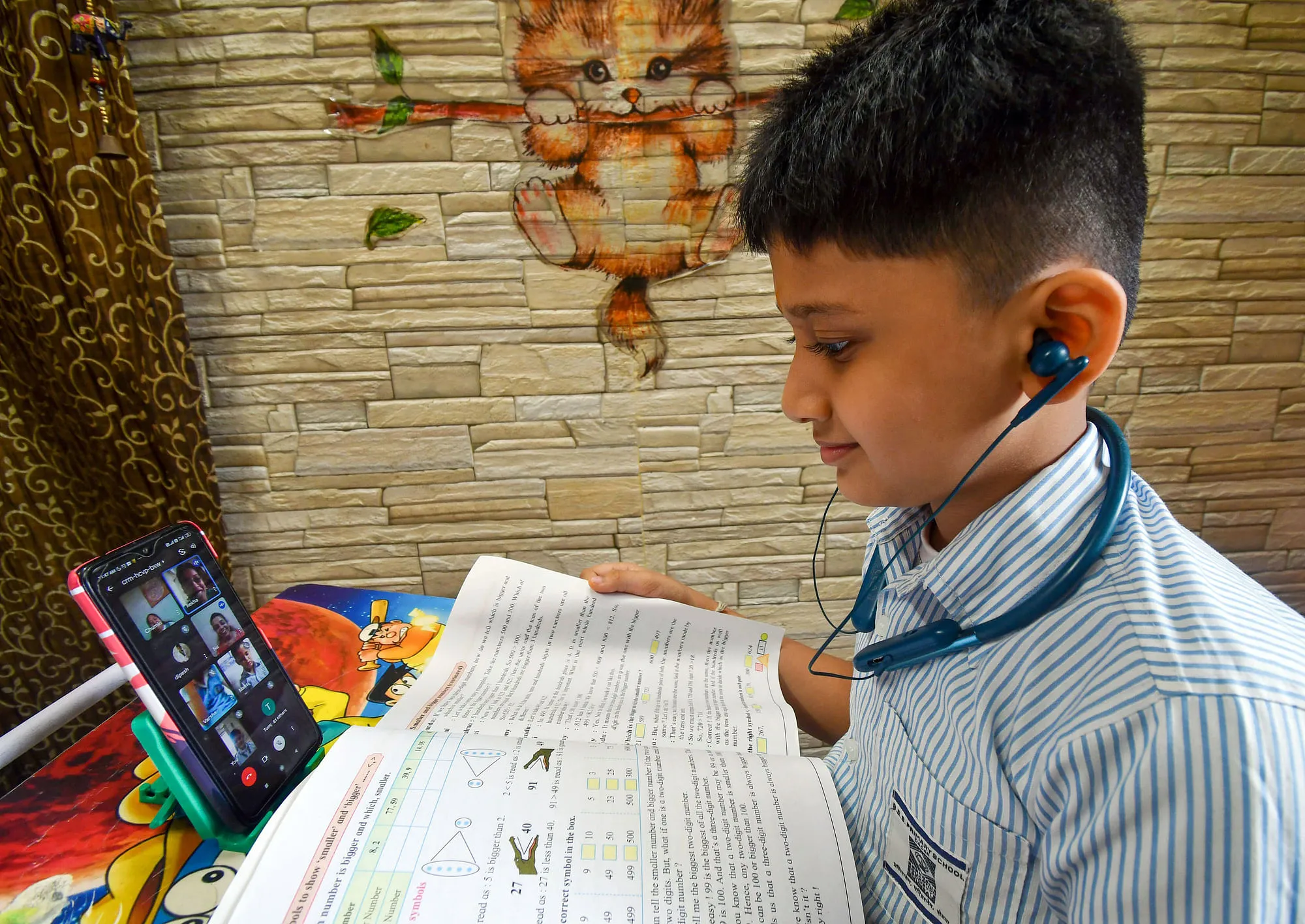Srinagar: Ghulam Hassan, a daily-waged gardener in a degree college in Srinagar, eagerly awaits reopening of schools.
His three children have not been able to cope up with the changed scenario of education since 2020.
He owns a basic phone and has never been able to save enough to buy a smart gadget that could help his children get educated by the school that charges fees for online delivery of classes.
He is not alone in this paradigm shift where the online system of education has created a virtual divide between the haves and the have-nots.
Director School Education Kashmir Tasaduq Hussain Mir agrees that online education was not accessible by all.
“Around 40 percent of our students, according to our estimates, have no smart phone access,” he said. Calling it a hurdle in the delivery of education, he expressed hope that “education system would return to normalcy” and help children get back to school.
“We are ready with our teachers and schools but the situation is such that we are unable to call students to school. The risk and the perception of risk are both to be borne in mind,” Mir said.
The issue prevails even in families where parents do have a smart device.
If the parents are working, the gadgets remain inaccessible to children in the hours of class delivery.
In many cases, where availability of a gadget is not scarce, there is no parental control and supervision when kids are on smart devices at home.
Mir said that the department of education was aware of the unavailability of devices for many reasons in many families.
He said that the department started radio and community classes in far-flung areas to overcome the issue.
Mir said that in addition a learning management system ‘Alumnus’ was introduced to make class work and learning modules available online and ready to be accessed anytime by the students.
“Zoom classes take place live and ‘Alumnus’ is in addition to Zoom,” he said.
Mir said many believe that the steps are too limited in their scope, given the heterogeneity of educational institutions and the communities whose children are out of school.
Mushtaq Ahmed, a school teacher in a far-flung village of Kupwara district, has been treading regularly to reach school he is posted at to teach a handful of students that show up for community classes. However, neither the students remain present in full capacity nor the teachers.
“It is a struggle to bring in students in a scenario where parents are aware of the temporary and inadequate arrangement. We are just making it run somehow. Education has suffered and continues to do so with the restrictions the pandemic has brought in,” he said.
The government last week ordered reopening of higher education institutes in J&K.
The private and home-based coaching classes have been running across J&K at varying capacities and no decision has yet been taken on the resumption of schools.






